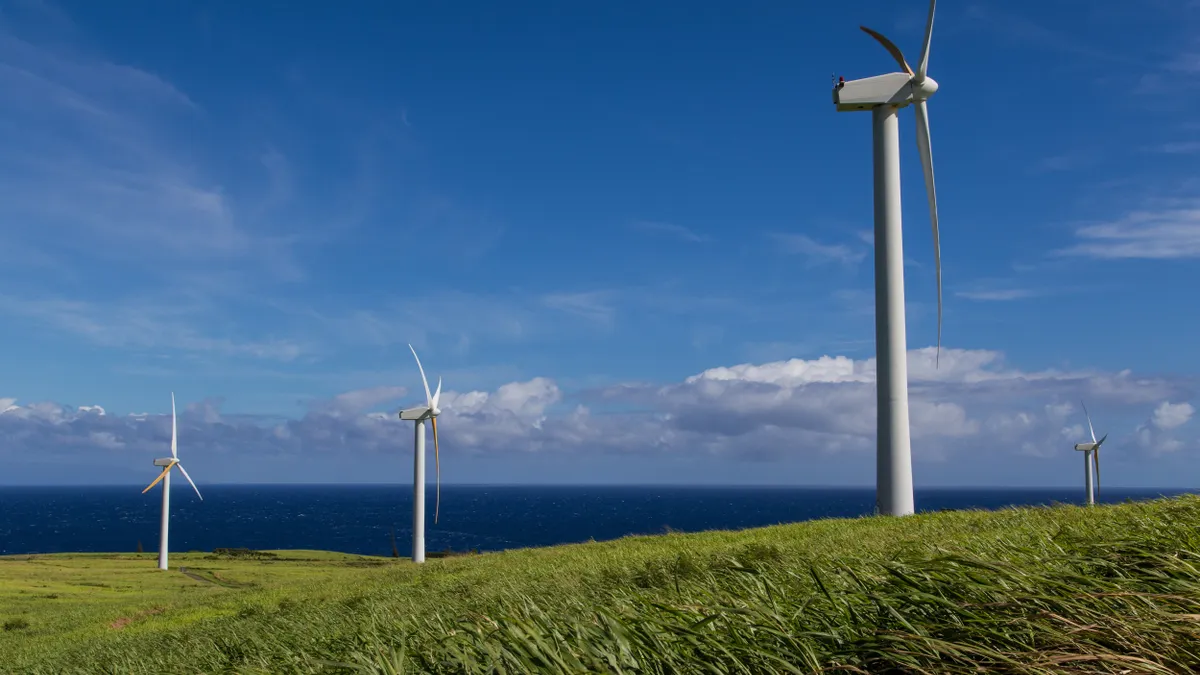Dive Brief:
- The American Council for an Energy-Efficient Economy (ACEEE) released its 11th annual State Energy Efficiency Scorecard last week. The scorecard offers a detailed analysis of the states best paving the path of energy efficiency, as well as the states with the most-improved energy initiatives.
- Massachusetts took first place for the seventh consecutive year, particularly due to the state's Green Communities Act and Affordable Access to Clean and Efficient Energy Initiative. Following Massachusetts, in order, were California, Rhode Island, Vermont and Oregon. New York and Washington (both ranked 7th) were also touted for their vehicle miles traveled (VMT) reduction targets.
-
Idaho, Florida and Virginia were highlighted as the three most-improved states in the report. Idaho advanced seven spots due to utility savings, Florida progressed due in part to its new Farm Renewable and Efficiency Demonstration Program, and Virginia has made progress through initiatives like the VASaves Green Communities Program.
Dive Insight:
In May, ACEEE released its biannual scorecard that ranks 51 large cities on energy-saving efforts, in which Boston took home the crown with a score of 84.5 points (out of 100). Therefore it's of little surprise that Massachusetts would once again lead the pack in this year's state-focused scorecard, especially due to "historic investments" that the state has been making in clean energy development, according to Massachusetts Gov. Charlie Baker.
It was more surprising, however, that California fell behind this year to land the number two spot instead of tying for first. The state is focused on a goal to reach 60% renewables by 2030 and 100% renewables by 2045, and it is maintaining leadership in establishing appliance standards — California was the first state to approve efficiency standards for desktop computers, laptops and monitors this year. This all signifies that despite Massachusetts taking the lead, due to its more holistic approach, California is still worth watching.
Other states worth watching are Rhode Island (3) and Vermont (4), which, in addition to Massachusetts, led the scorecard in utility-sector energy efficiency programs and policies for the fourth consecutive year. In fact, Rhode Island scored a "perfect 20-out-of-20 score in the utility programs category" according to ACEEE, indicating that the state's three-year Energy Efficiency Procurement Plan could be a model across the board.
While cities and their mayors have succeeded in spurring smart city development without much support from the state level, this scorecard — and the initiatives that it highlights — demonstrates that a city can better reach its benchmarks with resources and strategies put in place by the state.












